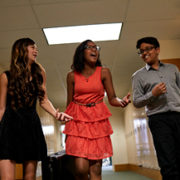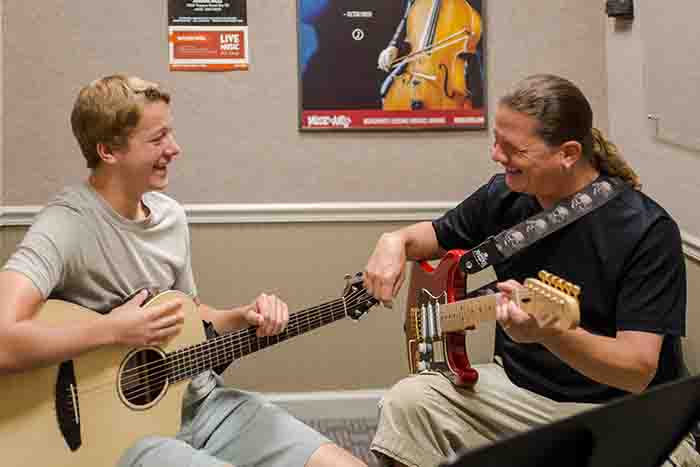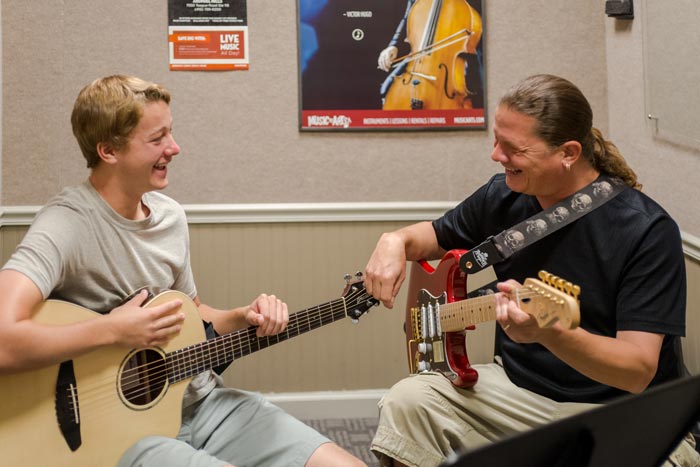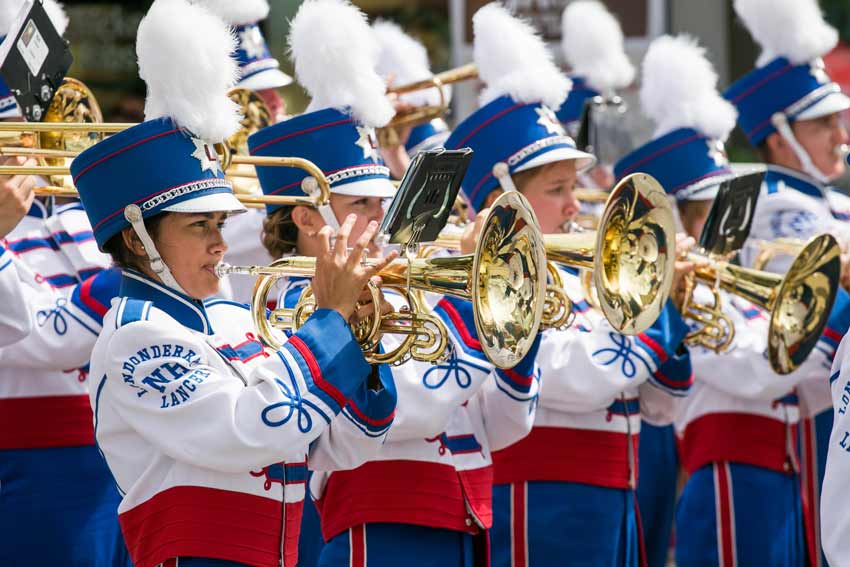May 13, 2015
Why Music Recitals Need to Ditch Their Cold, Stuffy Reputations


Ask most adults why they quit taking music lessons when they were young, and you’re likely to get lots of answers describing awful experiences having to do with student recitals. You may think the cold and sometimes cruel reputation of music recitals faded away decades ago, but it’s very much alive in our culture today. Fear and shame surrounding public performances is keeping people of all ages from enjoying and pursuing music, and it’s up to music educators to do something about it.
How the music recital earned its nasty reputation
Countless films, books, and television shows have portrayed music recitals as being uncomfortable and even traumatic for children. Particularly nasty recitals can be so emotionally damaging to kids that bad experiences can remain lodged into their memories long into adulthood. To understand why student recitals can be so negative for kids, you have to put yourselves in the shoes of a child. Most educators now view music as something that empowers children socially, creatively, and intellectually, but recitals are experiences that have the potential to take power away from children.
There’s no single thing that makes recitals bad experiences for kids, but an overarching theme we can look to is when educators and parents prioritize discipline and control over everything else. When kids feel forced into a position where they feel like anything other than a perfect performance will be seen as an embarrassing public failure, it’s easy to see why generations of people have distanced themselves from music due to recital-related issues.
The power of expectation
Ensuring that recitals are great for your students is something that has to start long before you plan for them. Communicating the right messages about music and expectation during lessons is crucial for making recitals rewarding and affirming for your students. Recitals are important events that celebrate and mark a student’s progress, but placing too much emphasis on them can be destructive and distracting. Every music educator worth their salt knows that absolute perfection isn’t something students can or should aim to achieve in music, but it’s a message we’re not always great at communicating to our students. Educators should set realistic expectations for their students long before they set foot on stage. You certainly don’t demand perfection from yourself, so make sure your students know you don’t expect it from them either.
A little agency goes a long way in recitals
Giving students a say in things like how they dress and what they perform at recitals are ways to help them feel empowered and involved. This especially applies for younger students who lack performance experience. Simple acts of empowerment can go a long way when it comes to creating rewarding recital experiences for kids. Of course, a delicate balance needs to be struck here. Depending on the recital, the strictness of things like dress codes and music selections vary quite a bit. But the more ownership and agency educators can give their students when it comes to performances, the better.
Make sure the magic of music is at the heart of your recitals
This last piece of advice is the most important. As an educator, your students won’t be able to celebrate music at recitals unless you do first. This means that holding on too tightly to expectations and conventional standards of success can get in the way of the massive benefits students can receive from performing at recitals. Creating a positive recital environment can’t happen without the focus being on anything but your students thriving through music. Between the stress of booking a venue and assigning pieces to students, it’s easy for educators to lose sight of why recitals are meaningful for kids and how to keep the focus on music. For music educators who experience stress surrounding recitals (this pretty much covers all educators), the simple act of refocusing on your students’ relationship with music can be a big help.
Incredible music educators around the world are helping their students have great recital experiences, but we’ve got a long way to go. But by holding firm to the belief that music is something that can be powerfully good in the lives of children, you’ll have the best chance at creating recital atmospheres that are positive and affirming for your students.







